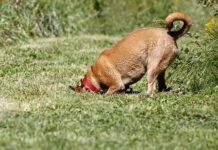How to Stop Your Dog from Chewing: Effective Strategies for Pet Owners
Many new dog owners face a common challenge: excessive chewing. From gnawed furniture to shredded carpets, destructive chewing can make pet ownership frustrating. Worry not; understanding your dog’s chewing behavior is the first step towards curbing it effectively. This guide provides valuable insights and practical strategies to help you redirect your dog’s chewing habits.
Understanding Chewing in Dogs
Chewing is a natural behavior for dogs, especially puppies, who may chew for various reasons, including teething discomfort, boredom, or anxiety. Identifying the motivation behind your dog’s chewing is crucial in addressing the issue.
Common Causes of Excessive Chewing
- Teething: Puppies often chew to relieve sore gums. This behavior typically occurs in dogs under one year of age.
- Boredom: Dogs may resort to chewing when they are not mentally or physically stimulated.
- Separation Anxiety: Dogs that experience stress when left alone may chew destructively as a coping mechanism.
How to Help Teething Puppies
If your dog is chewing excessively due to teething, consider providing specially designed teething toys. These toys offer a variety of textures that can soothe sore gums and redirect chewing behavior.
Addressing Boredom and Anxiety
To combat boredom, ensure your dog receives ample daily exercise. Aim for a minimum of 20 minutes of aerobic activity, supplemented with mental stimulation through brain games and training exercises. Engaging your dog through play and training can significantly reduce destructive chewing habits.
Utilizing Positive Reinforcement
To correct chewing behavior, supervision is key. When your dog starts to chew on an inappropriate item, calmly say “No” and redirect them to an acceptable chew toy. Reward them with praise or a training treat when they chew the right item. This positive reinforcement helps them learn what is acceptable to chew on.
What Not to Do
Avoid using fear-based methods, such as startling your dog with noise or punishment. These approaches do not teach appropriate behavior and can increase anxiety. Instead, focus on constructive methods to encourage good chewing habits.
Additional Tips for Managing Chewing
- Apply a safe bitter apple spray on forbidden items to deter chewing.
- Provide a crate or confined space for your dog when unsupervised to prevent access to dangerous items.
- Ensure your dog has a variety of safe chewing options, including chew toys and durable treats.
Consulting a Veterinarian
If your dog suddenly develops excessive chewing habits without an apparent cause, such as teething or changes in routine, consult a veterinarian. This behavior may indicate underlying health issues requiring professional evaluation.
Final Thoughts
With patience and consistent training, you can help your dog develop healthy chewing habits. By understanding the reasons behind their chewing and providing appropriate outlets, you can protect your home while ensuring your dog remains happy and stimulated.
Do you have tips for managing your dog’s chewing? Share your experiences in the comments below!












